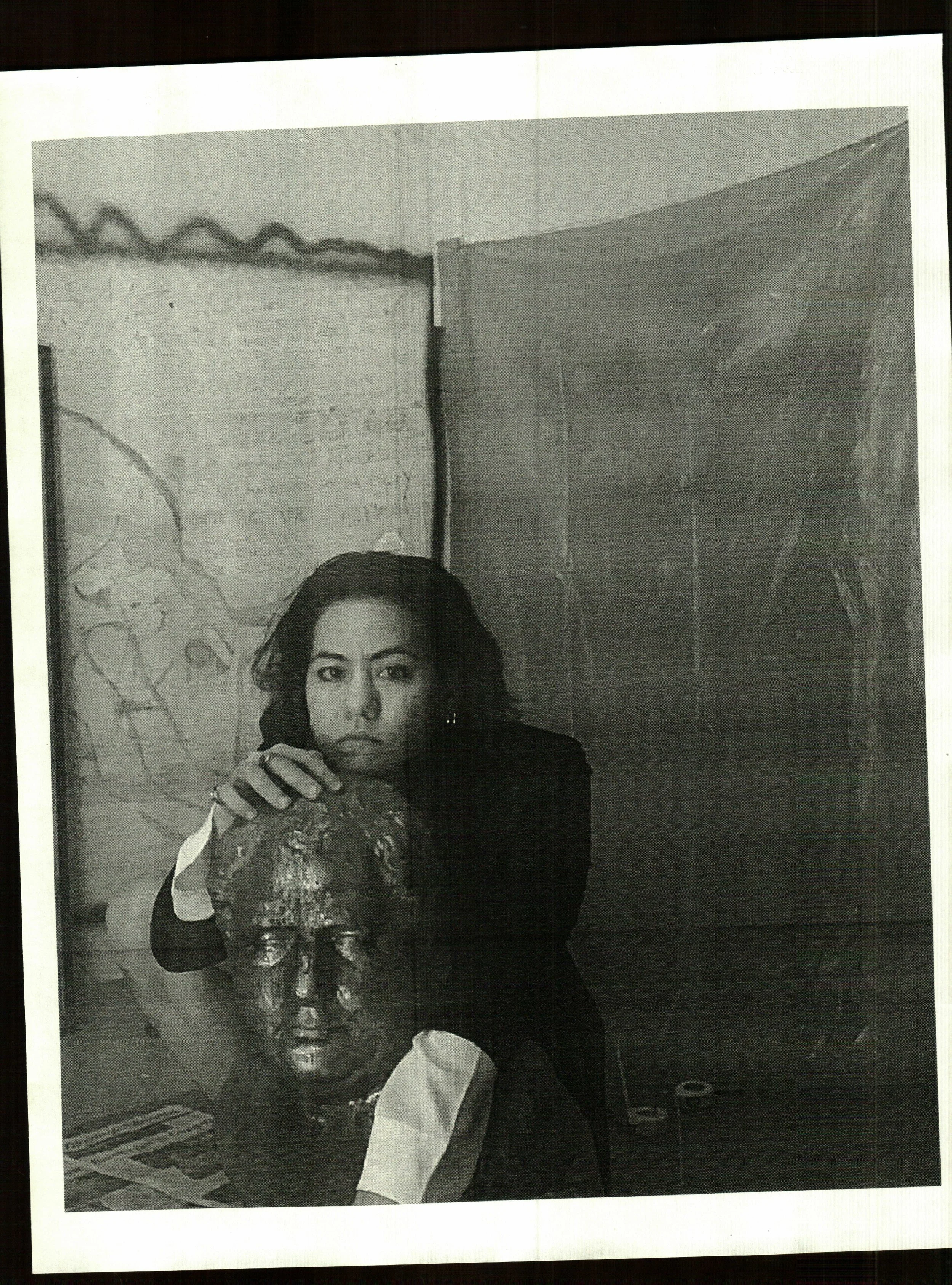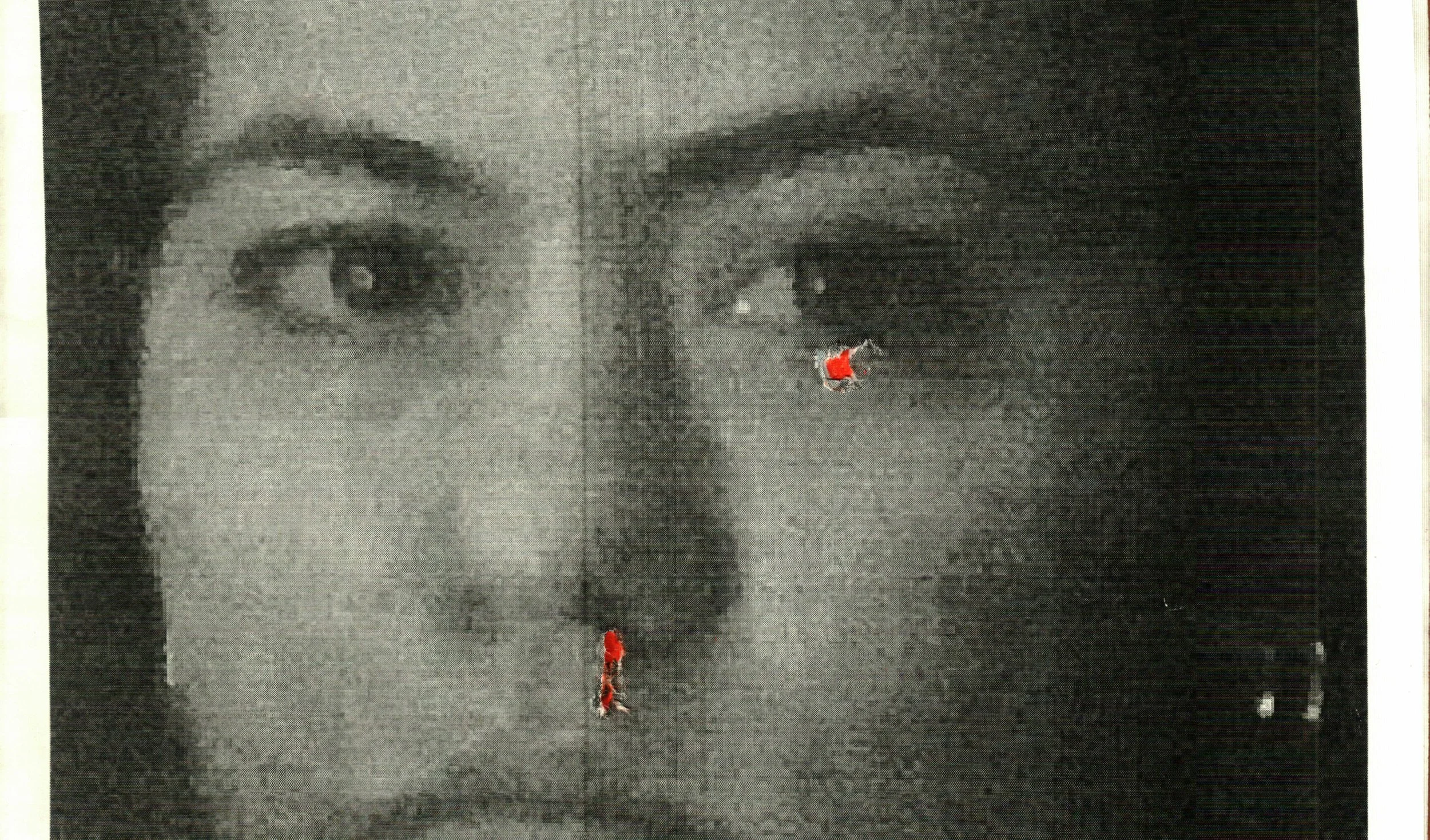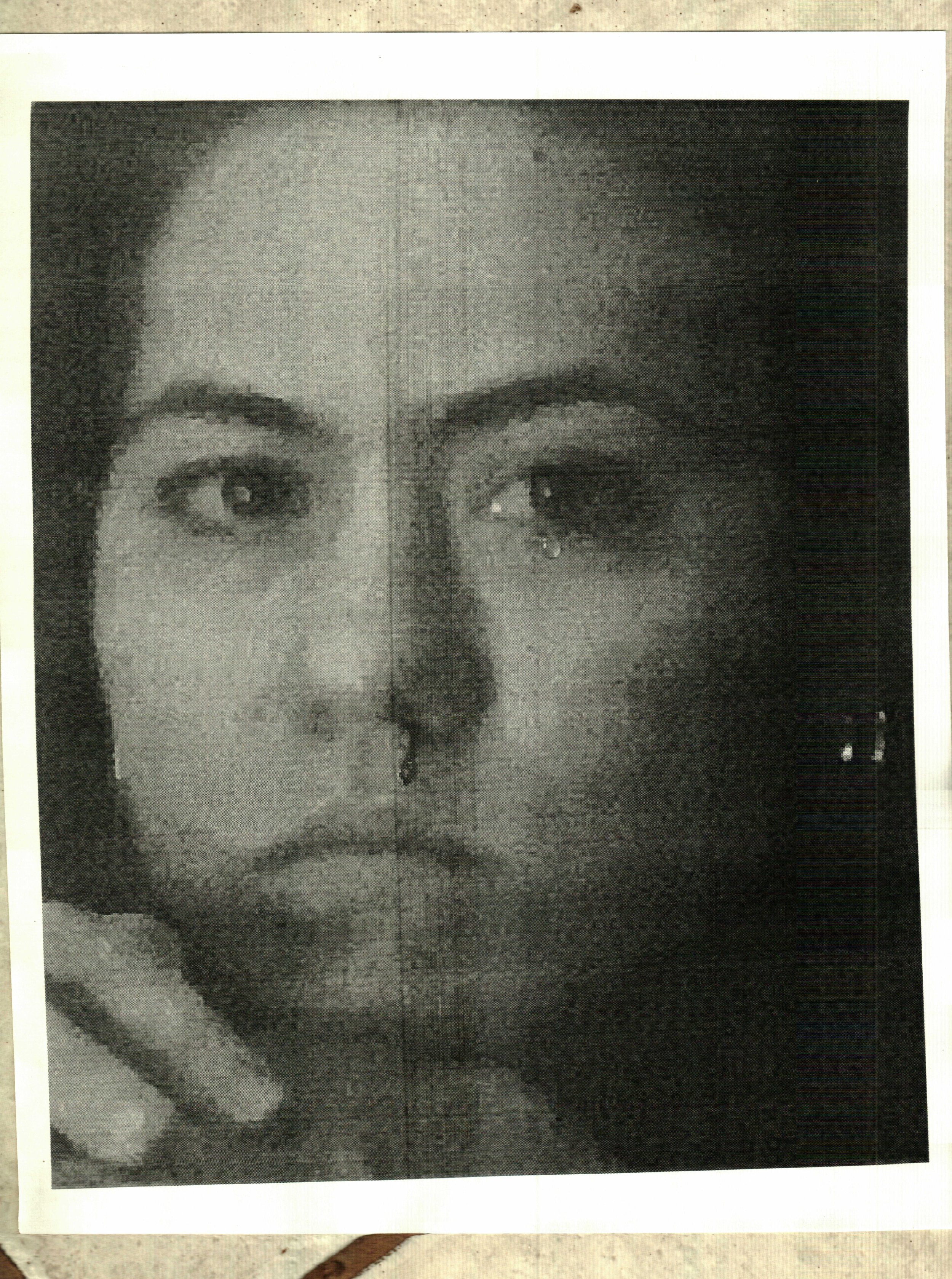Bárbara Sánchez-Kane for french fries Magazine S/S 2022 issue 5
Interview: Alina Ferraro & Guilherme Ferrari
Self-portraits by Bárbara Sánchez-Kane
You just came back from Japan, how was it?
Yes, I actually came back yesterday. I was doing scouting for a project I'm presenting there in September. I think the 29th of September at the Okayama Art Summit. I was there just for like a couple of days, my first time in Japan, it was like five nights, a very quick trip to Okayama. I was scouting the venues.
Is that for a fashion show?
No, actually I think I'm going to do an art installation, I'm not sure yet. I don't think I'm going to do a performance this time. I am pretty sure I'm going to do an art installation. I think sometimes too, again, because of COVID, you need to be very creative on the timing. Japan is going to be open for tourists, I think, in ten days or something, because now you can just enter with a working visa. You need to be very creative on the project you are developing, I think it's a good restraint sometimes to put time and the length of the traveling of your art to Japan. So I'm thinking, yeah, an art installation. I'm still figuring it out, but I have this week to submit the project.
You lived in LA as well, right?
I lived there for just nine months. It was a brief period doing an internship with Bernhard Willhelm. He was there at the moment, I know he's in Paris now. He moved his studio to Hollywood Hills, so it was a mix of his world. And for me, it was a very small team. We used to work in the garage of the house that he rented there in Hollywood Hills. And at that time he was doing a what he called a future perspective of his work that was shown at the MOCA Pacific Design Center in L.A. He was very involved in what he was doing, so it gave me a wider perspective of what fashion could be or not, or what a fashion brand should look like.
And then you came back to Mexico where everything is happening right now
Well, after that I moved back to Merida, my hometown. And before that, I studied in Italy, in Florence for four years at Polimoda, where I studied fashion design. For a long time now we have been dealing with the COVID restrictions, but I think art has always happened here. There are certain periods of time where in a city like this, all these people start moving here and there's this interaction between locals and international people. So you start this conversation about different subjects. And that's the interesting part, the fluctuation of not always getting the same answer. I think it's very good for the interaction of ideas.
It seems like a very open minded place, do you feel supported there?
In big cities, yes. If you analyze even in Italy, in big cities there is more liberty, more space for different thinking. But if you go outside in the small towns, you still have these very square minded ideas about what’s being a woman, and what’s being a man, what’s the national Mexicanidad, and how we need to act. But I think the city, like I was telling before, is like a melting pot of all these people that maybe were expelled or not, you know?
What woman is inspiring you the most?
When I think about women, it's not about one person in general. I don't believe in the idea of what is femininity in our culture and what's being a woman and the place for women. There's not a standard of what being a woman is. If we analyze, if we put everything in one place and say, all the women need to be this, you're literally leaving out all these thoughts about being yourself. In Mexico, we say “La Mexicanidad of being a woman”, like what role women play in our country? In Mexican culture, we have three types of women. You have the Virgin, the whore and the mother, and those are the only roles of women in our country. So breaking all these stereotypes, I realized the empowerment a woman can have and the choices they can make and how slowly we're breaking certain things as abortion, like in different states in the whole Republic of Mexico. I think about all these women that were before starting all these movements in Mexico and the ones that are now and and for me, it gives me a better future. Younger generations, for example, if you talk with a 12 year old, like some of my friends’ kids, we don't even talk about gender anymore. So for me, it's a brighter future for the place of the human being in general.
We should be able to be ourselves and express that. Do you think gender is a performance?
Well, yes. If you read Judith Butler and some authors, it’s obviously a performative nationality, it’s imposed. So yes, it is a performance, and hopefully in the future we won’t be talking about gender anymore.
You lived in Europe, you lived in LA, what is the place that inspires you the most? Is it still Mexico where your roots are?
For sure. Even in my graduate collection in Italy, it was about Mexico. I grew up here, I moved to Italy when I was like 22 years old. I grew up in Mérida and I have been in Mexico City for almost four years now. For my culture, Mexican culture, how can you break this stereotype of what's being a Mexican? If you analyze how the Mexican identity changed and how the government chose a purpose of marketing, how they market it, even how we have the Catrina in our culture. But really it's just a marketing strategy for foreigners to think about Mexico just in these things, tacos and this and that. But our culture is so rich that I cannot even describe the amount of food and places we have in different regions from south to north, but they want to pin it down to be easier for the traveler, for the tourists to come here and enjoy our country and be like, okay, this is the Mexican that you need to understand. So breaking all these rules about what's being Mexican and giving a different perspective is very interesting to me. And I’m not saying my perspective is the truth.
You are very honest and very open in your work, I feel like you are expressing yourself to yourself more than anything, and you do it anyway
There are people that I will touch and several people that I won’t make a difference. There's not a universal truth, that would be boring.
I read that you cry sometimes at your performances. What was the most intense performance?
I think it was one of the first times I presented in Mexico. At the time I was maybe 18 or 17. And my friend was an editor and invited me to be part of this show. There were three different brands. And I remember when I opened it, I was the first person to present and it was called "Clase de las Artes con Sánchez-Kane". So I had five artists naked, painting, quick sketching let's say, the models that walked through the runway show, and there were about 19 looks. At the end it made me so emotional seeing everyone so involved in, and connecting with one another. I remember seeing one person crying after seeing the show, and that made me cry.
What did you want to express with Macho Sentimental?
In our culture, there are two forces that are very different, and with two forces that are very different in terms of words, it analyzes, it literally neutralizes the charge of what's being a macho in our country. But then again, it's something that machismo doesn't only come from men. A woman can be a macho, too. And there are all these studies about the sentimentalism or the nostalgia about being Mexican. So for me, it was about unifying these words, neutralizing the charge of what I think in the future we should aspire to. We are in contact with every side of performative gender, being a man or a woman. So at the end, I don't even analyze or think about it, like if I feel more in touch with this side or the other one, but I express it both ways.
And be sentimental, be allowed to be soft, all of us.
Yes, I think plurality is very sexy. Feeling very vulnerable, and sometimes we try to hide it because we think about it as being inferior for some reason. And I think in the process of that, I'm very lucky in my privilege to be able to work and actually use this platform to express what I'm feeling.
Do you feel that somehow you do it to people to identify with you and to be free as well?
Hopefully yes. I hope it can change somebody. You realize that there’s probably a young person that is still fighting and feeling restrained. So then I think I still need to talk about this.
What was it like to express your sexuality where you live? Was it hard?
At the time, yes. I was 22 and I moved to Italy. I grew up in a very Catholic environment, so obviously religion and homosexuality don't go hand in hand. So it was hard, but I was privileged, I still had a house. I was not kicked out of my house.
I love that you are doing painting and performances and fashion design. You get to express yourself more, artists don't do just one thing, do you think the art world is changing now?
For me, there was always this urge to discover. I’m not talking about abilities, I'm talking about processes and different parts and different responses and different mediums. I always say that painting is what I do when I don't want to work. I remember the show I had just in April. I was so stressed that I was painting and painting, I didn't want to speak to no one. And it's a process that you do by yourself. It's very introspective. I feel this process of painting is something that I do in solitude. And sometimes we need that silence to analyze the ideas that we are projecting. And in a way, I found that it was fun for me and therapeutic and I will keep doing it.
You express a lot of sexuality in your work and you're very free with it. Are you ever scared of being judged for some people that might not understand?
Obviously this Catholicism is still impregnated inside of me. It's not easy to grow up going to church every Sunday. Those ideas are still in the back of my head, it’s not like you can just throw it away, it’s something that you grew up with. I think we're very used to sexuality just coming from a man's perspective. Perversity is something that we all have and express in different ways. And some people like to be perverse in the public sphere and some in private.



